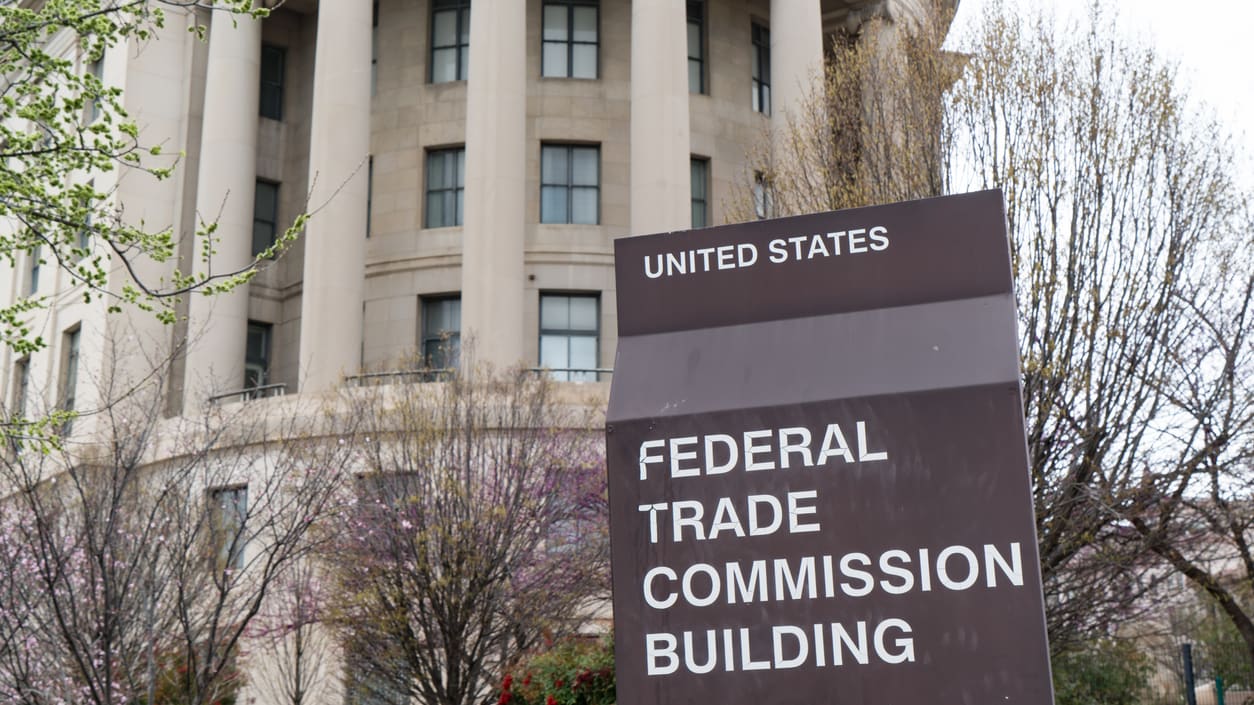FTC Bans Most New Noncompete Agreements Nationwide
Rule makes all existing noncompete agreements except for those covering senior executives unenforceable

The U.S. Federal Trade Commission (FTC) today approved a proposed final rule banning most new noncompete clauses in employment contracts—a sweeping rule affecting millions of workers.
The rule also makes all existing noncompete agreements except for those covering senior executives unenforceable and requires employers provide notice to current and former workers that their noncompete clauses are no longer in effect. The FTC defines the term “senior executive” to refer to workers earning more than $151,164 annually who are in a “policy-making position.”
The final rule reflects some changes from the original Notice of Proposed Rulemaking, but the substance is the same, said Jonathan Crook, an attorney in the Charlotte, N.C., office of Fisher Phillips.
Crook added that senior executives as defined in the rule is “an extremely limited population, which the FTC estimates to constitute fewer than 0.75 percent of all workers.”
The rule goes into effect 120 days following its publication in the Federal Register. Enforcement could be further delayed by likely legal challenges. The U.S. Chamber of Commerce has already pledged to sue the agency over the rule.
The rule defines “noncompete clause” to mean a contractual term that blocks a worker from working for a competing employer, or starting a competing business, within a certain geographic area and period of time after the worker’s employment ends.
The rule also applies in some cases to agreements that require employees to pay back the employer for training costs if the worker’s employment terminates within a specified time period.
All current state laws limiting noncompetes would be preempted unless they provide greater worker protection than the FTC rule.
Crook noted that the final rule does not explicitly invalidate other covenants, such as nonsolicitation, nonservicing, nonrecruitment, and nondisclosure clauses. “Any challenge to such covenants would need to be evaluated on a case-by-case basis,” he said. “If the final rule survives, this gray area will certainly provide fertile grounds for litigation.”
The FTC said noncompete clauses constitute an unfair method of competition and therefore violate Section 5 of the Federal Trade Commission Act. The agency estimated that about 20 percent of U.S. workers are bound by a noncompete agreement. The figure is higher in some industries, such as technology and health care.
Employers that use the policies typically cite the need to protect trade secrets and other sensitive information from rival firms looking to poach talent.
The FTC concluded that noncompete agreements suppress wages and harm competition by blocking workers from pursuing better opportunities and by preventing employers from hiring the best available talent.
“The freedom to change jobs is core to economic liberty and to a competitive, thriving economy,” said FTC Chair Lina M. Khan. “Noncompetes block workers from freely switching jobs, depriving them of higher wages and better working conditions, and depriving businesses of a talent pool that they need to build and expand. By ending this practice, the FTC’s proposed rule would promote greater dynamism, innovation and healthy competition.”
The FTC received more than 26,000 comments from members of the public after announcing the proposed rule in January 2023.
“The new Republican Commissioners [who voted against the final rule] were both sympathetic to the issue, but highlighted what many in the business community believe—that the Commission overstepped its constitutional authority and that this is a matter left to Congress or the states,” said Daryl Leon, counsel with BakerHostetler in the firm’s New York City office.
SHRM’s Response
SHRM does not support the FTC’s sweeping blanket ban on the use of noncompete agreements, said Emily M. Dickens, chief of staff and head of government affairs for SHRM.
Dickens said that “SHRM has consistently advocated for allowing parties to consent to well-structured noncompete agreements versus a blanket ban on such agreements. Blanket bans on noncompete agreements pose significant challenges for HR professionals tasked with safeguarding their employers’ intellectual property and preventing unfair competition.”
In submitted comments on the proposed rule, SHRM offered the FTC less restrictive alternatives, such as establishing a minimum salary threshold for workers, limiting the types of employees who can enter into noncompete agreements, and prohibiting the use of noncompetes in certain industries, Dickens said. “SHRM’s approach is rooted in balance. We believe in striving for equilibrium between the FTC’s objective of enhancing worker mobility and employers’ legitimate interests in training employees and safeguarding confidential information.”
Next Steps for Employers
“There are several legal bases on which courts could decide the FTC lacks the authority to ban noncompete agreements in the manner provided by the rule,” Crook said. “Challengers will likely move for a nationwide injunction stopping the final rule from taking effect while litigation is pending. Ultimately, the final rule’s legality will probably go before the Supreme Court of the United States. In the meantime, employers should discuss the ramifications of the rule with their counsel.”
As litigation against the rule plays out, employers are advised to revisit their restrictive covenants to ensure compliance, consider whether business interests can be protected with properly tailored nonsolicitation or confidentiality clauses and limit trade secret access only to those who need it.
“Employers concerned about the FTC rule and broader legislative and regulatory efforts to restrict the use of noncompete agreements may look to other options to protect their confidential information and business relationships,” added Melissa McDonagh, an attorney in the Boston office of Littler. “This could include nondisclosure and nonsolicitation agreements, though it’s still important to ensure that those agreements comply with local, state and federal laws.”
Advertisement
An organization run by AI is not a futuristic concept. Such technology is already a part of many workplaces and will continue to shape the labor market and HR. Here's how employers and employees can successfully manage generative AI and other AI-powered systems.
Advertisement


